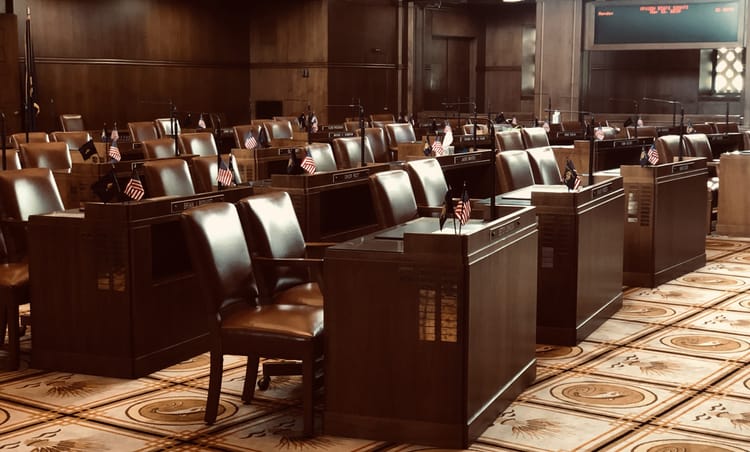Ways & Means Co-Chairs Release Framework Budget

The Takeaway
On Thursday, Sen. Elizabeth Steiner (D-SW Portland) and Rep. Tawna Sanchez (D-NE Portland) released their budget framework, marking the starting point for navigating the session’s budget politics. The co-chairs’ framework document lays out a $31.6 billion spending plan, which is roughly $500 million less than the plan recommended by the governor last month. Stewardship was a common theme in the document. Budget and political leadership contend the economic uncertainties ahead mean the legislature must make strategic investments in common priorities while ensuring fiscal prudence.
Lawmakers have grown accustomed to excess revenue over the last several years. Due to turnover in the chambers, roughly two-thirds of the House and one-third of the Senate began their tenure in the last two election cycles. During this time, the legislature had unprecedented resources between federal financial support and robust incomes boosting the state’s economy and tax collections. For many lawmakers, they are only familiar with excess revenues and debates over where to spend it. Now, however, the legislature has depleted those surplus funds and state resources are coming back down to earth, requiring the legislature to slim its spending.
Among the many differences between the governor’s recommended budget and the framework released this week is the state’s budget reserves. In her budget, Gov. Tina Kotek (D) suggested the legislature forgo its statutorily required one percent distribution to the state’s reserve fund and deploy those resources to increase spending on state programs. Under current law, the action would require a three-fifths supermajority of both legislative chambers, which has become a point of contention in recent weeks between the parties. Instead of shifting the reserves deposit, the budget framework suggests trimming spending or pausing hiring in the state’s agencies, saving 2.5 percent of the projected current service level.
The legislature has a long road ahead to complete its budget. On May 17, the legislative revenue committees will receive the last economic and revenue forecast of the session. Those projections will set the state of play over tax and budget negotiations heading into the final stretch. While we wait for the forecast and ensuing debates, whichever direction they may turn, the legislature has plenty on its plate to keep members and advocates busy.

What We're Reading This Week
- Oregon Public Broadcasting reports on a proposal to issue $1 billion in bonds to pay for the state’s share of the Interstate 5 Bridge Replacement Project.
- The Columbian writes that higher-income Oregonians are moving to Vancouver, suggesting the main motivator is the recent increase and expansion of Portland area income taxes.
- The state economists at Oregon’s Office of Economic Analysis suggest smaller metropolitan and rural areas are leading economic growth, a sharp turn from the years before the pandemic.
- Capital Press writes about a proposal to tax off-road diesel vehicles and machinery dying as part of the legislature’s cut-off deadline for the first chamber, bringing relief to agricultural advocates.
- Oregon’s Republican leaders are calling for a special counsel to investigate the bourbon scandal at the Oregon Liquor and Cannabis Commission, suggesting it is inappropriate for Democrats to police themselves. Additionally, Republicans are calling for the commission to publicly release the list of individuals who received the rare bourbon.
- With the governor’s housing package passed by the legislature, she is setting her sights on her next policy endeavor—improving the state’s behavioral healthcare system.





